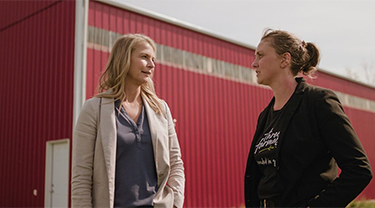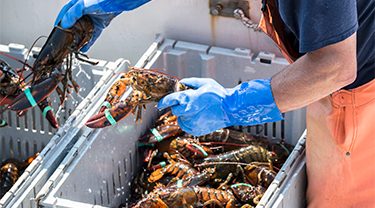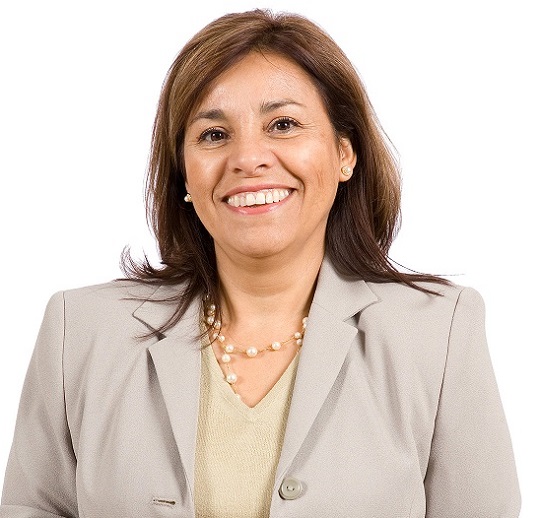Three Farmers Foods sees big potential in the Indo-Pacific
Plant-based snackables company Three Farmers Foods sets their sights on new Asian markets.


Once you get your foot in the fast-growing Indo-Pacific markets, the potential for expansion is vast, says Natasha Vandenhurk, the CEO and co-founder of Saskatchewan’s Three Farmers Foods.
The plant-based snackables brand recently started exporting into the region and has already felt the impact.
“We see a lot of opportunity in the Indo-Pacific and the word spreads fast. You land a club account, like Costco Japan, and you’re working closely with them, and then you have Costco China reaching out. It starts taking on a life of its own,” Vandenhurk told Export Development Canada (EDC).
This domino effect is something Ashley Kanary, EDC’s director of Global Agri-food, says can prove hugely profitable for brands exporting from one region to the next—so long as there’s momentum behind your product.
“Traditionally, divisions of Costco keep an eye on what sells in adjacent regions and if a product is innovative, they’ll list it elsewhere,” Kanary says.
At EDC, we leverage our relationships with global retailers to create export opportunities for Canadian food and beverage companies. Contact EDC to learn how we can connect you with your next international market.
The story
Launched in 2011, Three Farmers Foods sells healthy snacks made from roasted chickpeas, lentils, and fava beans grown in the Canadian Prairies, and co-manufactures camelina oil (made from oilseeds and omega-3 fatty acids) to five international markets.
According to their website, “Three Farmers believes that everyone should have wholesome food to eat, with an understanding of where it comes from and how it’s made.”
Given the company’s unique product offering, expanding to Australia, Japan, and Singapore was a logical next step, says Vandenhurk.
You should also check out
Learn how to protect your profits from the impacts of currency risk and fluctuating exchange rates
“We’re introducing a very differentiated item into the snack foods market. This isn’t a mainstream, conventional product. This is truly different,” says the savvy business woman who studied economics at the University of Saskatchewan. “We need to go into markets where the trends match and there’s going to be a natural pull for these items into the space.”
She points out that consumers in these regions tend to value quality, healthy, and mindful eating more than shoppers in North America.
Farming at the core
A passion for food and how it’s grown has always been at the heart of Three Farmers Foods. Elysia Vandenhurk, chief brand and innovation officer and co-founder, admits she and her sister once took it for granted.
“Just how privileged we were to be a part of it—to truly understand how food goes into the ground, and how important the nutrition of the soil, and then what happens to that food when it leaves the farm,” says the certified Red Seal chef, whose father Dan was one of the three founding farmers of the company.
“To reflect back on how we grew up, I’m so grateful to have that experience growing up on a farm,” she says.
With her culinary arts background and her sister’s business knowledge, they knew their combined expertise would be a value-add for launching the business.
“We made a really great team alongside farmers to build this brand and make roasted pulses, put awesome seasoning on them and launch a snack brand,” she says.
And what’s made their brand so successful? She says it all comes down to one factor: “Grit.”
Exporting always the goal
According to the Vandenhurks, exporting has always been a key priority for the company.
“The whole concept started with some pull into export markets. There was some initial interest in China on the (camelina) oil side of things. The challenge that we had is the same challenge that so many others have—proximity, language, business etiquette, logistics,” Natasha says.
To navigate those hurdles, they turned to their partners, including financial advisors, government organizations, and fellow business owners in the space, for support.
“When you’re not living or situated in the middle of the market that you’re trying to penetrate, you need networks that are creating customer connections, that are providing education on how they do business, that are creating logistics partnerships,” she says.
Support from EDC enables growth
Three Farmers Foods obtained direct financing from EDC as the company enhanced their U.S. presence. At the onset, it helped the company centralize processing operations within their Saskatoon-based factory.
This, in turn, reduced the company’s carbon footprint by consolidating to a single facility.
“In this industry, specifically, the risk profile of us as a business, is just far too great for traditional lenders. We just don’t fit their mantra and their ratios at this stage…that’s where EDC has been able to come in and offer creative solutions,” she says.
The company also tapped EDC Portfolio Credit Insurance to extract more working capital through bank partnerships.
EDC Portfolio Credit Insurance protects your accounts receivables by covering up to 90% of your insured losses if a customer doesn’t pay. We protect your profits, so you can focus on growing your business.
When Three Farmers Foods was receiving order requests from international conglomerates and needed to drastically increase their inventory, EDC’s insurance gave them access to the funding they needed.
“It made the bank more comfortable to margin foreign receivables,” she recalls.
EDC’s match-making efforts have likewise been “instrumental” in helping the company get their footing in the U.S. and new markets, namely the Indo-Pacific.
The sisters have also worked with the Trade Commissioner Service (TCS) along the way. Among other services, the TCS helps vet customers, undertaking background checks and digging into their business profiles.
“They really help do the due diligence behind onboarding new customers in an export market,” Natasha says.
The founders say they would advise any company looking to export to the Indo-Pacific or elsewhere to create a foundational network in advance. In other words, don’t go at it alone.
“(Expanding into new regions) absolutely needs to be supported and you absolutely need to have the partners around you to make it successful,” Natasha says.
“It’s taken this brand from a small Saskatchewan, local company, to a global exporter. That’s super phenomenal.”















